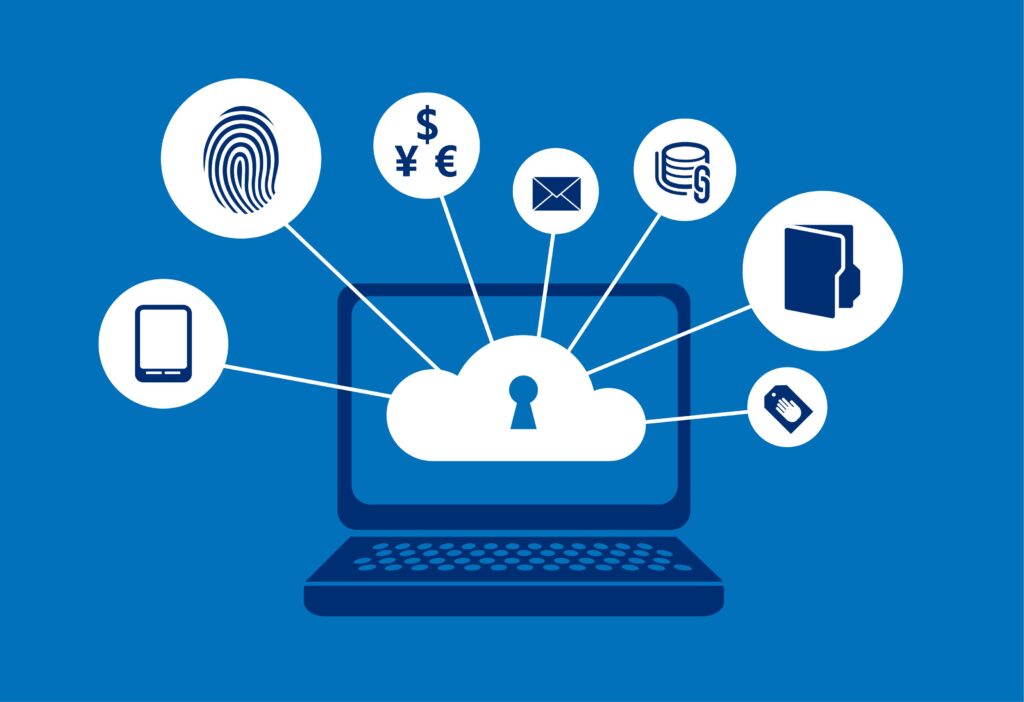Understanding Privacy – Case in Point: Aadhaar

Indian Government; the government established after 150 years in a British imperial administrative culture gave rise to most important ideas in oppressive modern statism with eminent figures like Keynes, Macaulay among others. It is tragic that even after gaining freedom from the oppressive British, the government merely chose to inherit the colonial legacy. What false hope did the government have? Did it imagine that by systems engineered for colonial purposes, bureaucracy and central planning, it would become anything but a world leader at erosion of the individual liberty and privacy in the hands of an omniscient state?
Reports about Indian bulk surveillance have recently began to trickle in. One such report [note]Bhatia, Gautam, State Surveillance and the Right to Privacy in India: A Constitutional Biography (May 12, 2015). (2014) 26(2) National Law School of India Review 127. Available at SSRN: https://ssrn.com/abstract=2605317 [/note] states that “It is now known that there are at least two surveillance regimes in India, in uncertain stages of preparation: the Central Monitoring System (CMS), which provides for the collection of telephony metadata by tapping into the telecommunications’ companies records; and Netra, a dragnet surveillance system that detects and sweeps up electronic communication that uses certain keywords. These programs, wide in their reach and scope, have dubious statutory backing.” They also, very clearly, impinge upon basic fundamental rights” – effectively creating a (cyber) police raj. Interestingly, the report creates parallels between surveillance of our government and the british colonial oppressors in the time of the freedom struggle. “Our founding fathers,” it observes, “were thoroughly opposed to a Police Raj as our history of the struggle for freedom has borne eloquent testimony to it.”
Recently, the government passed the Aadhaar Act (2016). It was tabled as a money bill, and according to Jean Dreze, a development economist, designed to bypass parliamentary procedures. It is widely conjectured to be one of the greatest tools of mass surveillance in India. Aadhaar is an all-purpose identification tool, to make your life transparent to the state with details of your railway bookings, phone call records, financial transactions, and possibly even more – will be accessible to the government, which has shown ominous propensity to control, or try to control, our thoughts and actions in the past – without invoking any special powers. In the context of these developments, we introspect the right to privacy and discuss the legal and constitutional implications of the Aadhaar Act, an introspection long overdue.
[media-credit name=”Study IQ” align=”alignnone” width=”823″] [/media-credit]
[/media-credit]
Fundamentals of Privacy
What is Right to Privacy?
The concept of right to privacy is said to be integral to guaranteeing the right to life and liberty – defined as “the inviolability of a person as an aspect of their right to self-determination” in one of the most influential essays in the history of American law, written as early as 1890. Over the next century, it evolved to Alan Westin’s oft-cited definition – “the claim of individuals, groups, or institutions to determine for themselves when, how, and to what extent information about them is communicated to others.” It is popularly known as the right “to be left alone”. Right to Privacy is an internationally accepted fundamental right in 21st century.
Why is Right to Privacy important?
The question is not why privacy, but rather why not? We need to change this line of thought. Nobody needs to justify why they ‘need’ a right. A presumption in the favour of liberty must be endorsed – placing the burden of proof on the party interfering.
“Coercion, not privacy needs legitimising.”
An analogy in favour of privacy opposed to coercion follows from a seemingly implicit assumption – the right to life. Imagine yourself being held at the gunpoint, asked to justify why you should be allowed to live? It’s pretty hard to come up with an answer. For instance, it’s impossible to measure a life’s worth and similarly, it’s impossible to attach worth or utility to the notion of privacy. The opposite question is however much more important. What entitles the other party to deny someone their life? We must be able to preserve our basic fundamental rights, ipso facto; questioning the legitimacy of the law proposed.
But, what do you have to hide?
Culturally, Indians deeply lack a notion of privacy in their daily lives, where almost every part of one’s life is open to family, community, village or society. In the context of marriages, it’s not uncommon for relatives to ask how much is being spent on a wedding, or when a couple plans to have children. Indian children are expected not to shut their bedroom doors. It is deplorable that it is still fairly common in IIIT-H for people to give their debit card pins/important passwords among other things to others, not just peek into others chats but ask about details of that personal conversation. Ironically, we don’t even consider such intrusion for seeking personal and private information as “interference” or “breach of privacy”. The reason given- “Are you doing something immoral? If not, what do you have to hide?”
“What is private need not be secret”
The concept of “privacy” is often conflated with “secrecy”, even though the former is a distinct and much richer concept. It’s no secret what happens inside a bathroom, but we nevertheless close the door for the want of privacy. We cherish private spaces to do and be as we like, free from the gaze of others, and not because something immoral or illegal is transpiring inside. The “nothing to hide” argument makes an inappropriate judgement about the kinds of information people want to hide.
Right to Privacy – Fundamental or Not?
A human right is a natural right enjoyed by every human being by the virtue of their being alive. The Right to Privacy is a part of the Universal Declaration of Human Rights in UN which India has signed, which states that “No one shall be subjected to arbitrary interference with his privacy, family, home or correspondence, nor to attacks upon his honour and reputation. Everyone has the right to the protection of the law against such interference or attacks.”
Fortunately, the Aadhaar case has been instrumental in enkindling a serious debate on privacy. To give a taste of state callousness on the issue of privacy, the Attorney General of India remarked, “Citizens do not have the fundamental right to privacy.” In defence, petitioners argued that it is not to be conferred but merely recognised as a part of right to life and liberty, guaranteed to every citizen. They say that the right to privacy in consonance with International Covenants, should find place in opinio juris, i.e. India’s state practice in the context of international law. This line of reasoning finds credence through the idea of “respect for international law” that is laid down in Article 51(c).
We feel that these points make a strong case for right to privacy and are amused that the question – “Is right to privacy is a fundamental right?” is still being debated in the Supreme Court. This is the sorry state of affairs in India.
[media-credit name=”feminismindia.com” align=”aligncenter” width=”670″] [/media-credit]
[/media-credit]
Privacy in the context of Aadhaar
The Aadhaar (Targeted Delivery of Financial and Other Subsidies, Benefits and Services) Act, 2016, as the name suggests is aimed as an all-encompassing panacea for the problem of leakages, corruption in government welfare programmes, all forms of tax evasion along with other forms of crimes, providing a platform to perform any and all activities from banking, KYC, etc to linking all recorded activities to a unique biometric identification.
The state is responsible and is expected to formulate policies, provide services, incorporate welfare schemes and take initiatives for the well being and the betterment of its citizens and the larger society. In light of this, it argues that it’s necessary to impose certain regulatory measures which aid in implementing such policies. In return, it expects individuals to cooperate in the same. Driving licenses, passports among others can be seen in this context. So, why is Aadhaar invasive and a driving license is not?
To answer this fundamental question, we need to understand the notion of proportionality or balance between state laws and fundamental rights, specifically situated in the context of right to life. The Constitution enshrines the clause “No person shall be deprived of his life or personal liberty except according to procedure established by law”. Initially, it seems to imply that if the state has established a certain procedure through law which deprives a person of her life, personal liberty or any other fundamental rights, then such an action is permissible.
However, this does not legalise unchecked power that the State may bestow itself under the garb of procedural propriety. A constitutionally permissible limitation of a fundamental right is only acceptable if, among other things, the measures undertaken are rationally connected to very limited spheres directed specifically for the fulfilment of that purpose. As Justice Sikri says in simple terms, a law that limits fundamental right(s) is only permissible, if there is a proper relation (‘proportionality stricto sensu’ or ‘balancing’) between achieving the proper purpose and preventing the limitation to a fundamental right.
Hence the crucial question generally asked by the court is whether a state interest is of such paramount importance as would justify an infringement of the fundamental rights, and does it act in a very narrow sphere to achieve a very specific purpose – not affecting any other sphere of citizens life. Driving licenses can thus be viewed legitimate in the context of privacy. They act as a regulatory measure to allow/deny a specific activity (driving) on Indian roads to ensure enhanced safety of Indian citizens. It’s a good example of a regulation stipulating narrowly-tailored exceptions to a fundamental right, in service of a compelling state interest.
The Aadhaar Act, viewed in the same context is the very antithesis of a “narrowly-tailored” law.
The other point to ponder, even more outrageous than the apparent omniscience of the act, is the irrevocability of the act of parting with your biometric information. As petitioners have argued, this irrevocability makes even the most voluntary and benign form of the act unreasonable as it implies a permanent waiver of fundamental rights.
The argument presented is that giving away your biometric data is a one time decision that has far reaching repercussions. Biometrics is an integral part of individual’s identity, and is extremely sensitive in nature as it can never be changed. Giving away an irrevocable piece of your identity has the potential to amount to permanent identity theft.
You may think – who would bother stealing identities of people? Merely stating one possible aftermath of the theft are the financial implications. It is a big industry, primarily because the trail is often untraceable. First, the victim’s bank accounts and credit cards are accessed and used illegally. The thief can withdraw money or max out credit cards. Second, the victim’s identity is used to take on loans and get new credit cards. Such incidents are all too common. Imagine what will happen if the identity theft is permanent!
To emphasise, consider a thought experiment to give an insight into permanent waivers of fundamental rights – voluntary enslavement. Imagine a person approached you, the court, asking to voluntarily become a slave, with full consent and knowledge of what he/she has to lose, in return for some gains, monetary or otherwise.
Would you as a judge in the court – in principle – allow this to happen? When we say “in principle”, we assume that the case is genuine and that there is no cheating, extortion, or consent under duress involved.
No, right? This happens so in real life too. This form of enslavement is prohibited, and this experiment helps us understand why. Voluntary enslavement is a one-time choice in a manner that no further choice in the matter is possible. It is not possible to gain back liberty once anyone becomes a slave. The consent cannot be taken back. This is not in consonance with our ideas about autonomy after that one decision, which is something that human beings must be in a position to exercise at all times.
“One does not exercise their liberty by simply giving up their liberty”
It is thus clear that the right to liberty, life and privacy must be possessed at all times, for it is a fundamental right of any person – deeming any permanent wager unreasonable.
Conclusion
I write this article as a reminder, warning and a wake-up call to all of the fellow IIITians, the future creators of technologies that people use. The Aadhaar Act was not the first and will not be the last. A new DNA profiling bill will perhaps soon be tabled before the Parliament. Technology is the next bastion for the government to utilise to exploit privacy and further its colonial ambitions. The only hope is for the citizens to stand up for their right to privacy against oppressive regimes including but not limited to mass surveillance, data mining, and DNA profiling. As Gary Marx says, “…a thread running through all totalitarian systems from the prison to the authoritarian state is lack of respect for the individual’s right to control information about the self. It has been said that the mark of a civilisation can be seen in how it treats its prisoners; it might also be seen in how it treats personal privacy.”
Note: This article was written prior to the 9:0 ruling in favour of “Right to Privacy”. India is known to be a place where notions of privacy fail to find strong grounds for sensitivity, both culturally or historically, unlike countries like Germany. Hence the decision came as a pleasant surprise to us. We welcome the decision as a big victory for the people. We hope it will lead to push backs against spying and mass surveillance regimes by the government and set an example for other countries to follow.

 The Mess-y Situation
The Mess-y Situation  Ping! merges with Blogs@IIIT
Ping! merges with Blogs@IIIT  Cricket Corner: Looking Ahead to the Border-Gavaskar Trophy (Pt III)
Cricket Corner: Looking Ahead to the Border-Gavaskar Trophy (Pt III)  AI Art
AI Art  Cleaning up the Mess?
Cleaning up the Mess?  Qu’ils mangent de la grenouille! (Let Them Eat Frogs!)
Qu’ils mangent de la grenouille! (Let Them Eat Frogs!)